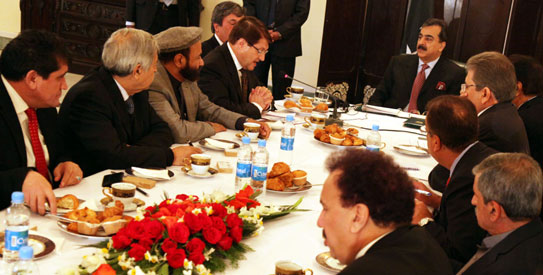ISLAMABAD: Pakistan and Afghanistan have delayed the implementation of a long-awaited transit trade deal signed last year due to differences over the issue of bank guarantees for Afghan goods, a senior Pakistani official said on Tuesday.
The US-sponsored trade agreement signed on Oct. 28 was to come in force on Feb. 12, and would have also allowed Afghan trucks to transport exports to India via Pakistan through the sensitive Wagah land route.
The new accord is to replace the 1965 bilateral trade agreement that has governed the transit of goods to landlocked Afghanistan through Pakistan.
Pakistani and Afghan officials met in Islamabad last week to review arrangements for implementing the accord, but failed to agree on the issue of guarantees for goods landing in the port city of Karachi for onward transport to Afghanistan.
Pakistan is seeking bank guarantees from Afghan importers, encashable in Pakistan on transit goods, to ensure the consignments reach Afghanistan and not smuggled back to Pakistan.
“We have extended, by a maximum of 4 months, the implementation of the accord that was to become operational on Feb. 12,” Commerce Secretary Zafar Mahmood told reporters. “We are hopeful of resolving the disagreement within this period.”
Afghan authorities say financial guarantees by Afghan banks should be acceptable, but Pakistani officials say they are not enough as Afghan banks do not have any branches in Pakistan.
Pakistan traders have long complained that goods destined for Afghanistan under the transit trade deal either do not reach that country or are smuggled back into Pakistan and hurt the domestic market.
Nearly 34 percent of Afghanistan's imported goods are transported through Pakistan, with the rest coming via Iran and Tajikistan.
Mahmood said the 1965 Pakistan-Afghan accord would govern the transit trade until the new agreement was implemented.
The long-awaited agreement was hammered out with the help from the United States, which is keen to try to wean Afghanistan off billions of dollars in foreign aid by boosting economic growth. – Reuters















































Dear visitor, the comments section is undergoing an overhaul and will return soon.